A two-week MAKAZI BORA training included a newly hired IT specialist, Mbagala Branch Administrative Assistant and 9 credit officer candidates from which 5 would be selected and given appointments. The head office secretary and an intern from the USA attended the first 3 days of training, which focused on housing, microfinance and a field visit. Out of the 9 credit officer candidates invited, one never showed up and another absconded after the 3rd day, leaving 7 to complete the training.
The first day of training was challenging. The material on housing was a little too advanced for some of the participants. The training was entirely conducted in English. Although the participants were all competent in English, it was clear that using Kiswahili for at least part of the training and for participant responses would help discussion and learning. On the second day (on microfinance and housing microfinance), participants could respond in Kiswahili and some of the more difficult concepts were explained in Kiswahili. When the intern from the USA left the training to begin her assignment on day 4, Kiswahili became the primary language of instruction and interaction.

Boaz leads a session
Days one and two had been highly theoretical, looking a housing, incremental building, livelihood assets and strategies and how basic financial intermediation works. The highlight was prob
 ably an example of a rotating savings and credit association (ROSCA) in which the participants received wages (in MAKAZI BORA shillings) from Boaz and organized themselves into two ROSCAs so they could buy MAKAZI BORA t-shirts from me over a period of time. Wearing their new MAKAZI BORA T-shirts, they went to the field in the operating area the next day to look at incremental building and informal systems for self-financing as it appears on the ground. The field trip was supposed to include the use of digital cameras and GPS units, but because of a logistical glitch we weren’t able to get them in time and would have to simple take notes.
ably an example of a rotating savings and credit association (ROSCA) in which the participants received wages (in MAKAZI BORA shillings) from Boaz and organized themselves into two ROSCAs so they could buy MAKAZI BORA t-shirts from me over a period of time. Wearing their new MAKAZI BORA T-shirts, they went to the field in the operating area the next day to look at incremental building and informal systems for self-financing as it appears on the ground. The field trip was supposed to include the use of digital cameras and GPS units, but because of a logistical glitch we weren’t able to get them in time and would have to simple take notes.The participants went out in teams to identify various types of incremental building and interview
interview  some people about their housing process. It brought the training to life. Our intern said, “When we were going out there, I was wondering if it would be hard to find examples of incremental building. When we got there, it was like every house.” The next day the teams reported on what they had seen and learned and we discussed where there was evidence of various types of household assets and self-financing strategies in people’s housing process.
some people about their housing process. It brought the training to life. Our intern said, “When we were going out there, I was wondering if it would be hard to find examples of incremental building. When we got there, it was like every house.” The next day the teams reported on what they had seen and learned and we discussed where there was evidence of various types of household assets and self-financing strategies in people’s housing process.
 interview
interview  some people about their housing process. It brought the training to life. Our intern said, “When we were going out there, I was wondering if it would be hard to find examples of incremental building. When we got there, it was like every house.” The next day the teams reported on what they had seen and learned and we discussed where there was evidence of various types of household assets and self-financing strategies in people’s housing process.
some people about their housing process. It brought the training to life. Our intern said, “When we were going out there, I was wondering if it would be hard to find examples of incremental building. When we got there, it was like every house.” The next day the teams reported on what they had seen and learned and we discussed where there was evidence of various types of household assets and self-financing strategies in people’s housing process. The training continued on to cover the MAKAZI BORA product and features. The credit officer candidates had a lot of good questions and ideas and some minor adjustments were made as a result and some others noted for future consideration. The last session consisted of the trainees forming groups and coming up with ideas for improving the MAKAZI BORA implementation, including a comprehensive review of all forms to be used. The difficult part came in choosing the 5 credit officer candidates who would receive appointments and telling 2 that they were not chosen. They all did an excellent job, but in the end the choices and appointments were made. With the staff trained and in place, we were ready to prepare for the start of MAKAZI BORA.
- scott



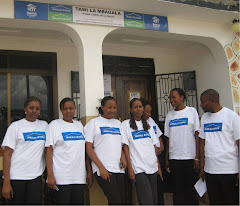
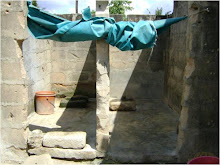

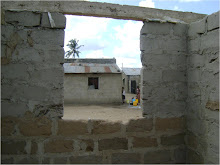
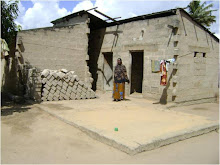
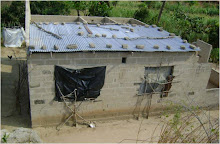
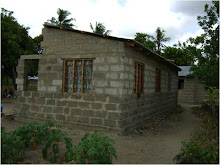

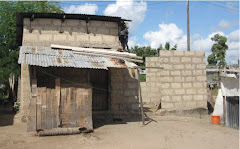






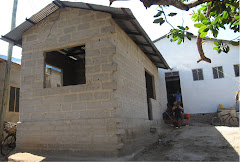.jpg)






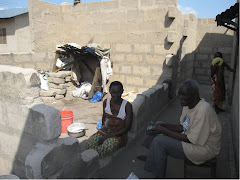
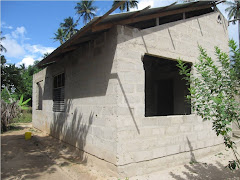

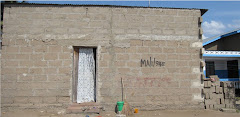

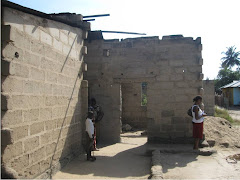













No comments:
Post a Comment